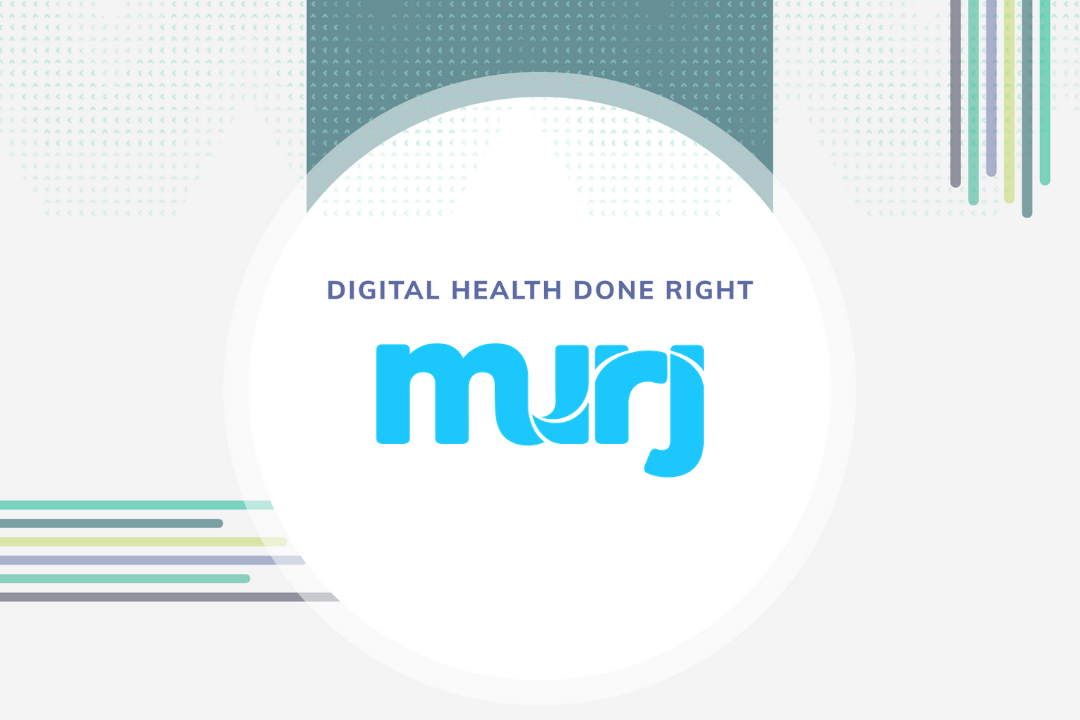Digital Health Done Right: Murj
Feb 27, 2019

It’s easy for companies to write lofty mission statements about their tech changing the world and saving lives, but actually fulfilling them is another story altogether. That’s why we take notice when one embodies their bold mission statement. One such company that warms our hearts is Murj.
“At Murj, we believe technology exists to enhance the quality of life”.
Murj offers cardiac implantable electrical device (CIED) data management software that helps clinicians spend more time with their patients and less time doing paperwork. To get an idea of just how much paperwork was getting in the way of doctors being with their patients, let’s go back in time about thirty years.
Until recently, the way CIEDs were checked hadn’t changed much since the 1980s. Patients visited their clinic for quarterly device check-ups. Or, they used a phone or magnetic wrist bands to collect and send in data from their implanted devices. That amount of data was manageable. But as the hardware became more sophisticated, collecting more and more data, the tech to handle the data lagged significantly behind.
Enter cloud computing and advancements in tech over the last five years. Now, CIEDs can remotely transmit data at any time. Multiply that number by the more than 10 million Americans who have a CIED and it’s not hard to see why clinicians are drowning in data.
When so much data is transmitted—at all hours of the day—it creates a backlog of information for clinicians to review. The struggle of assimilating, interpreting and taking action when needed on all that data is real. One overlooked detail can adversely impact a patient’s outcome. What makes managing the information even more challenging is that every CIED manufacturer has their own website requiring clinicians to download each patient’s data manually – one transmission, one password, and one login at a time.
Specialists accustomed to working with advanced instrumentation all day long have to download and sift through mind-numbing PDFs and paper files to find the information they need. Getting a historical view of their CIED patients requires doctors to review each transmission separately, line item by line item. Sorting through hundreds of transmissions every day this way makes proper triage a daunting task.
That’s where cloud-based, Software-as-a-Service (SaaS) Murj comes to the rescue—by getting the right data to the right person at the right time. Murj’s patent-pending workflow enables clinics to quickly and efficiently triage their CIED patients and because it’s cloud-based, users can access Murj from anywhere in the world with a single login. Murj enables clinics to quickly and efficiently triage their CIED patients and see what’s trending or out of normal range for their entire CIED patient population. Clinicians can monitor their patients more effectively and offer a higher standard of care. As a result, their patients lead longer, more satisfying lives.
Here’s another thing we like - because Murj prioritizes communication with their customers, they continue to make improvements based on user feedback. They’re constantly evolving and improving to ensure the best user experience possible. Keep an eye out to see what they have in store for 2019, I’ve had a sneak peek and it’s worth the wait!
If you’d like to learn more about Murj, check out their website at https://www.murj.com, contact them at info@murj.com or meet them in person at the ACC19 in New Orleans, March 16-18. You’ll find them at booth 1951.
We’re proud to have a company like Murj as part of our interoperable network and look forward to all the ways they’ll continue to use tech to enhance the quality of lives everywhere.
